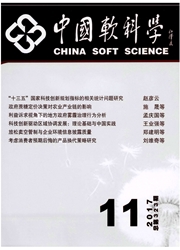

 中文摘要:
中文摘要:
从短期来看,热钱流入对房价的影响可以分解为"资本流动效应"和"流动性效应"。从长期来看,人民币升值预期还会通过巴拉萨-萨缪尔森效应、财富效应等"结构性效应"影响房地产价格。本文通过HP滤波、基于VAR模型的格兰杰因果检验和协整检验讨论了以上人民币升值预期影响房地产价格的效应,结果发现:(1)人民币升值预期引起了热钱流入,但是热钱流入的"资本流动效应"并不明显,即热钱流入房地产部门并不能在短期内显著影响房价;(2)热钱流入引发的"流动性效应",在短期内能够影响房地产价格波动;(3)人民币升值预期会通过"结构性效应"中的财富效用渠道对房地产价格产生长期性影响,但是"结构性"效应中的巴拉萨-萨缪尔森效应并不明显。
 英文摘要:
英文摘要:
Traditional literature on the impact of RMB appreciation on housing prices has mainly focused on the impact of hot money on housing prices.However,RMB appreciation can affect housing prices in many ways.In the short term,hot money may drive up housing prices through the channel of"capital inflow"effect and"liquidity"effect.In the long term,"structural"effects such as Balassa-Samuelson effect and wealth effect are likely to connect the RMB appreciation and housing prices.This paper employs empirical methods to investigate the three effects and the results indicate that hot money cannot affect housing prices prominently,but liquidity caused by hot money lead to higher volatility of housing prices.In addition,empirical results support the long-term"structural"effects between RMB appreciation and housing prices.
 同期刊论文项目
同期刊论文项目
 同项目期刊论文
同项目期刊论文
 期刊信息
期刊信息
